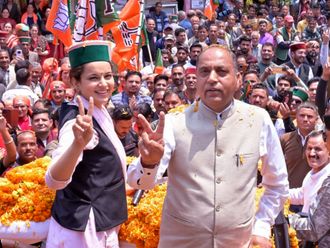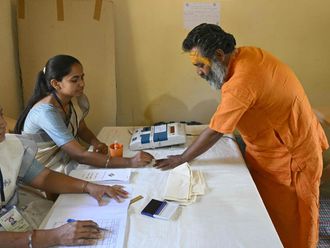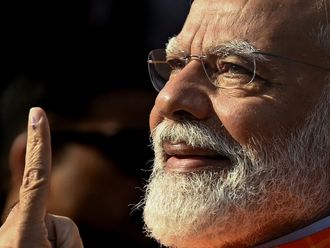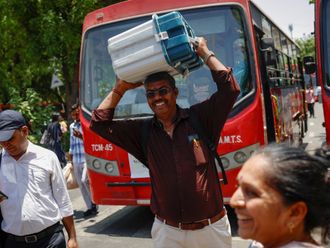Patna: Poor women in Bihar have declared their husbands “dead” to benefit from government pension schemes in the state and lay their hands on a few hundred rupees. The incident also highlights the level of poverty gripping this eastern Indian state.
The incidents relate to Patna, a key district of Bihar from where the government is run. Some women had applied for the Laxmi Bai Social Security Pension, which promises to pay a monthly pension of Rs300 (Dh15.5) to widows in the age group of 18 to 68, whose annual family income is below Rs60,000.
Officials said two women identified as Baby Devi and Foolwa Devi, residents of Paliganj block in Patna district, approached the local block office and procured death certificates of their husbands by bribing officials and applied for the monthly pension. Subsequently, their applications were approved.
The matter came to light when their husbands got wind of their wives getting the pension by declaring them “dead” and went to the local government office to confirm they are alive.
“Our wives have procured our death certificates and are getting monthly pension though we are alive,” the victim husbands, identified as Biswas Chaudhary and Ravindra Das, told the local block development officer Chiranjeev Pandey.
The official visited the village and found this to be true during the course of the investigation.
“This is a very serious matter. We have written to the local police to initiate punitive action against the accused women,” Pandey said on Tuesday.
Poverty levels are alarming in Bihar, with more than 33 per cent of the population still being classified as “poor”, although the government claims the past one decade has reported a substantial drop in this percentage. According to a latest report of the Bihar Economic Survey, 2019, the poverty ratio in Bihar, which was 54.4 per cent in 2004-05, dropped to 33.7 per cent in 2011-12.
The government added that to improve the economic and social conditions of rural people, it has been running the Bihar Rural Livelihood Project since 2007. This programme is aided by the World Bank and is popularly known as Jeevika. In 2007, Jeevika began in six blocks in six districts of Bihar; later the programme gradually expanded and now covers all the 534 blocks of 38 districts.
The programme aims at reducing in poverty through skill development and gainful self-employment. The core strategy of this programme is to create sustainable sources of income and financial inclusion, through self-managed community level organisations, particularly women Self-Help Groups.












